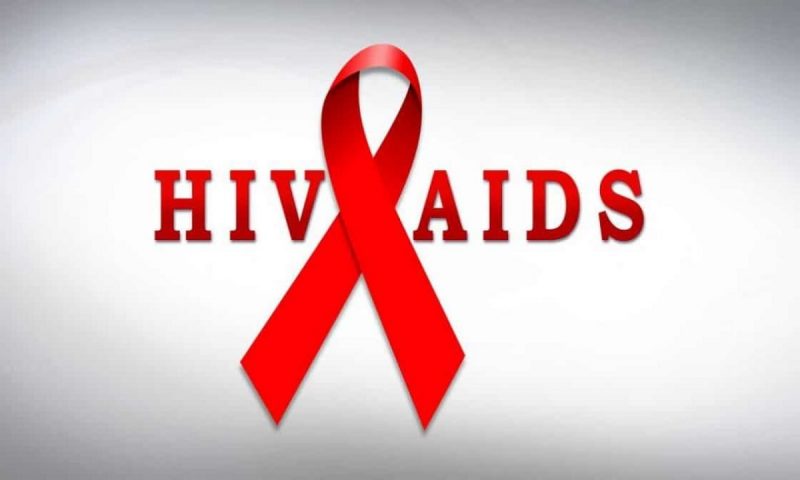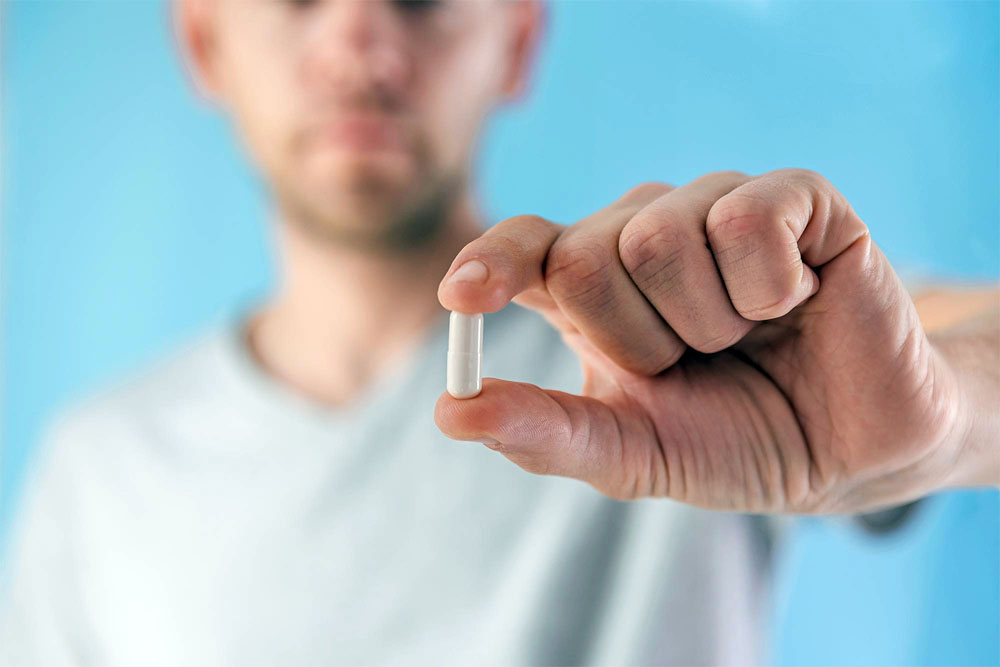Health
We don’t have enough medical doctors — NMA disagrees with Minister of Health

Contrary to a statement credited by the Minister of Health, Dr Osagie Ehanire that there are enough medical doctors in the country, the Nigerian Medical Association, NMA, on Thursday disagreed with the statement, saying, “based on the facts available to them, the country does not have enough medical doctors.
In an interview with Vanguard, the President of NMA, Dr Uche Ojinmah, who believed that the minister may have been misquoted said a country that parades a ratio of 1 doctor to 450,000/5000 patients contrary to the World Health Organization’s ratio of 1 doctor to 600 patients have no enough doctors to attend to a population of over 200 million people.
“I don’t think he (minister) is serious about that but the fundamental thing here is that don’t want enough doctors. He must have been misquoted because from 1960 to 2020, we have produced recorded over 80,000 doctors and 5,000 dentists registered with the Medical and Dental Council.
When you remove those that have died, those that have left the profession and those that have joined politics as well as those that have stopped practising, it will come down to about
READ ALSO:
- Obi-Datti Movement says Omokri using Obi’s name to stay relevant
- Troops intercepted N3.7bn stolen crude oil, says DHQ
- Gunmen kill Inspector of Police guarding bank in Lagos
40 or 50,000 doctors. Today, out of this number left, almost 20,000 have left the country, leaving us with about 20,000 to 25,000 doctors to cater for over 200 million Nigerians. This will give us a ratio of about 1 doctor to 450,000 or 5000 patients. The WHO ratio is 1 to 600 and this is the yawning gap and the Minister feels that 2000 to 3000 doctors produced in a year can cover the gap. “
He said even if Nigeria produces 2,000 to 3,000 medical doctors annually, they cannot replace consultants that have up to 15 to 20 years of experience the country loses to other countries due to poor remuneration, environment and insecurity.
He said: “The minister is also looking at it from the perspective of numbers. He is not looking at the level of experience of those that are leaving the country. Even if we agreed that the 2,000 to 3,000 doctors are enough, these are doctors that will go for house jobs, and then go for youth service and you are using it to equate consultants, medical officers long time medical officers, paediatricians etc that are leaving the country.”
Alleging that the government does not want to acknowledge there is a problem, Ojinmah accused the government of running away from the solution to the problem which is the increase in wages, provision of appropriate equipment, and making the hospital environment conducive to fighting insecurity nationwide.
“We do not agree with the Minister based on the facts available to us, go and check the number of doctors who have registered with the UK Medical Council in the past two weeks. They are over 260 doctors and that is just the only UK. I am not talking about America and Canada. Canada is coming down and taking them and running away. I want to believe that the Minister of health was misquoted.”
He called on the Federal government to tackle the brain drain problem in the health sector by addressing factors pushing doctors out of the country.
Vanguard
Health
Nigeria to Receive Breakthrough HIV Prevention Drug This Month – NACA

Nigeria to Receive Breakthrough HIV Prevention Drug This Month – NACA
Nigeria is set to receive Lenacapavir, a groundbreaking HIV prevention drug, in March 2026, the National Agency for the Control of AIDS (NACA) has announced.
The agency disclosed that regulatory approval has been granted by the National Agency for Food and Drug Administration and Control (NAFDAC), clearing the way for the drug’s introduction and nationwide rollout. The confirmation was contained in a statement issued on Monday by Toyin Aderibigbe, Head of Public Relations at NACA.
Lenacapavir, a long-acting injectable HIV prevention drug, has demonstrated 100 percent effectiveness in preventing HIV infection during advanced clinical trials. Unlike daily oral pre-exposure prophylaxis (PrEP) pills, the injectable medication is administered only twice a year, offering a more convenient and discreet prevention option.
NACA said the Federal Government has intensified preparations for the rollout of injectable PrEP in Nigeria, describing the initiative as a critical step toward reducing new HIV infections and strengthening national prevention strategies.
According to the agency, Lenacapavir will be made available at an affordable annual cost of about $40 per person, following voluntary licensing agreements with generic manufacturers. This pricing structure will apply across Nigeria and 119 other low- and middle-income countries, significantly expanding access to the drug.
READ ALSO:
- Iran Retaliates: Gulf States Allied With US Hit by Missiles, Drones
- Islamic Leader Warns Tinubu: State Police Could Be Used Against Opponents
- Daddy Freeze Warns Couples Over 40: ‘Avoid Moving Abroad, Especially US, UK’
“The Government of Nigeria is advancing preparations for the introduction and rollout of lenacapavir as pre-exposure prophylaxis (PrEP). This underscores our commitment to strengthen HIV prevention and accelerate progress toward epidemic control,” the statement said.
As part of readiness efforts, NACA revealed that landscape and preparedness assessments have been completed in 10 states — Akwa Ibom, Anambra, Benue, Cross River, Ebonyi, Gombe, Kano, Kwara, Lagos, and the Federal Capital Territory (FCT) — alongside regulatory clearance by NAFDAC.
Nigeria currently has an estimated 1.9 million people living with HIV, with a national prevalence rate of 1.3 percent among adults aged 15 to 49. In 2021, the country recorded 74,000 new HIV infections and 51,000 AIDS-related deaths, according to official data.
Women aged 15 to 49 are more than twice as likely as men to be living with HIV, while the South-South region bears the highest burden, with an HIV prevalence rate of 3.1 percent.
Health authorities say the arrival of Lenacapavir in Nigeria could mark a major turning point in HIV prevention, particularly for high-risk populations, as the country intensifies efforts to achieve long-term epidemic control.
Nigeria to Receive Breakthrough HIV Prevention Drug This Month – NACA
Health
Popular Brain Supplement Amino Acid May Reduce Longevity in Men

Popular Brain Supplement Amino Acid May Reduce Longevity in Men
A massive study of more than 270,000 people has revealed that higher blood levels of tyrosine, a common amino acid found in protein-rich foods and popular focus-boosting supplements, are associated with shorter life expectancy in men. Researchers suggest that men with elevated tyrosine levels could live nearly one year less on average than those with lower levels, sparking questions about the long-term health effects of both diet and supplements.
The study, led by scientists from the University of Hong Kong and the University of Georgia, analyzed health, genetic, and biochemical data from participants in the UK Biobank, one of the largest population-based studies in the world. The researchers focused on tyrosine and phenylalanine, two amino acids essential to metabolism and neurotransmitter production, including dopamine, which plays a key role in mood, motivation, and cognitive performance.
READ ALSO:
- Amnesty Exposes Alleged Torture, Extortion, Deaths at Imo Police Tiger Base
- REVEALED: How Dispute Over VIP Police Protection, State Policing Led to Egbetokun’s Exit as IGP
- Super Eagles Goalkeeper Suspended Over Match-Fixing Allegation
Using observational and genetic modeling techniques, the researchers found that while phenylalanine had no consistent effect on lifespan, tyrosine showed a clear and potentially causal link to reduced life expectancy in men. No similar association was observed in women, suggesting that biological and hormonal differences may influence how tyrosine affects aging in men versus women.
Scientists are still investigating why tyrosine might impact longevity. One possible explanation is insulin resistance, a risk factor for age-related diseases, which tyrosine may influence. Another theory involves stress-related neurotransmitters and hormonal pathways that may react differently in men, potentially explaining why the effect was sex-specific.
Although the study did not directly test tyrosine supplements, it raises questions about their long-term safety, particularly for men who may already have high systemic levels. Nutrition experts advise moderation and recommend monitoring protein intake. Common dietary sources of tyrosine include beef, pork, lamb, chicken, turkey, salmon, tuna, mackerel, shrimp, lobster, eggs, dairy, soy, whole grains, nuts, and seeds.
The researchers emphasized the need for further studies to confirm these findings, understand the mechanisms linking tyrosine to male longevity, and explore whether dietary or lifestyle interventions could safely reduce tyrosine levels and promote healthy aging.
Popular Brain Supplement Amino Acid May Reduce Longevity in Men
Health
Labour Unions Barricade NAFDAC Lagos Office Over Sachet Alcohol Ban

Labour Unions Barricade NAFDAC Lagos Office Over Sachet Alcohol Ban
Hundreds of workers and union members under the Nigeria Labour Congress (NLC), Trade Union Congress (TUC), and Food, Beverage and Tobacco Senior Staff Association (FOBTOB) barricaded the NAFDAC office in Isolo, Lagos on Thursday, marking the seventh consecutive day of protests over the enforcement of the sachet alcohol ban. The demonstration disrupted normal operations, with protesters blocking access to the NAFDAC premises from early morning, chanting slogans such as “No work for us, no work for you”, and demanding the immediate reopening of sealed factories, depots, and warehouses nationwide. Police officers intervened mid-morning to restore access, but union leaders vowed to continue their action until all demands are met.
 The protest stems from NAFDAC’s enforcement of the ban on sachet alcohol and 10cl PET bottled products, which has led to the closure of several indigenous factories, depots, and warehouses. Union leaders argue that entire facilities — including those producing lawful products — are being shut down unnecessarily, a move they describe as “calculated economic suffocation.” Anthony Oyaga, TUC Secretary, stated: “Across the country, indigenous manufacturing companies are being sealed. Factories are being shut down. Depots are being closed. Warehouses are being locked — including those containing other lawful products not connected to the targeted items.” Protesters warned that prolonged shutdowns are threatening livelihoods, affecting not only factory workers but also transporters, suppliers, distributors, market women, artisans, and logistics personnel. They stressed that such measures could push vulnerable youths into poverty, fuel social vices, and even pose national security risks if the situation persists.
The protest stems from NAFDAC’s enforcement of the ban on sachet alcohol and 10cl PET bottled products, which has led to the closure of several indigenous factories, depots, and warehouses. Union leaders argue that entire facilities — including those producing lawful products — are being shut down unnecessarily, a move they describe as “calculated economic suffocation.” Anthony Oyaga, TUC Secretary, stated: “Across the country, indigenous manufacturing companies are being sealed. Factories are being shut down. Depots are being closed. Warehouses are being locked — including those containing other lawful products not connected to the targeted items.” Protesters warned that prolonged shutdowns are threatening livelihoods, affecting not only factory workers but also transporters, suppliers, distributors, market women, artisans, and logistics personnel. They stressed that such measures could push vulnerable youths into poverty, fuel social vices, and even pose national security risks if the situation persists.
READ ALSO:
- Atiku, Other Opposition Leaders Reject Tinubu‑Signed Electoral Act 2026
- Kaduna Residents Storm Govt House, Demand Probe of El‑Rufai
- Fatal Keffi Road Accident: Driver Avoiding FRSC Patrol Causes 6 Deaths
Union leaders, including FOBTOB National Secretary Jeffery Igein, emphasised that the protests would continue until the government addresses the economic fallout of factory closures and replaces strict enforcement with targeted regulatory measures. “We are not criminals. We are workers. We are producers. We are parents. We are taxpayers. We are Nigerians,” Igein said, stressing that the protests are peaceful and lawful.
NAFDAC, led by Prof. Mojisola Adeyeye, has maintained that it has not received any official directive from the federal government to suspend enforcement. The Federal Ministry of Health and Social Welfare also affirmed that NAFDAC has the exclusive legal mandate to regulate food and drug products, including sachet alcohol. Despite this, union leaders continue to demand dialogue with policymakers and the reopening of factories, depots, and warehouses, arguing that blanket enforcement has caused unnecessary economic hardship.
The protests underscore ongoing tension in Nigeria between public health policies and economic livelihoods, highlighting the delicate balance regulators face in enforcing bans while preserving jobs and sustaining industries. Workers insist that they will maintain pressure until what they call economic strangulation is reversed and structured regulation replaces punitive closures.
Labour Unions Barricade NAFDAC Lagos Office Over Sachet Alcohol Ban
-

 metro3 days ago
metro3 days agoHajj, Umrah Are for Muslims Only – Scholar Urges NAHCON to Tighten Screening
-

 International2 days ago
International2 days agoIran Retaliates: Gulf States Allied With US Hit by Missiles, Drones
-

 International2 days ago
International2 days agoSaudi Arabia Denies Lobbying US to Strike Iran as Gulf States Respond to Escalation
-

 International2 days ago
International2 days agoSeveral U.S. Warplanes Crash in Kuwait Amid Ongoing Iranian Strikes
-

 metro2 days ago
metro2 days agoDaddy Freeze Warns Couples Over 40: ‘Avoid Moving Abroad, Especially US, UK’
-

 metro3 days ago
metro3 days agoFour Die in Katsina Stampede During Ramadan Alms Distribution
-

 metro3 days ago
metro3 days agoGunmen Abduct Father of Former Ebonyi Deputy Governor on Way to Church
-

 Business3 days ago
Business3 days agoGlobal Crude Hits $73 as Middle East Tensions Escalate















